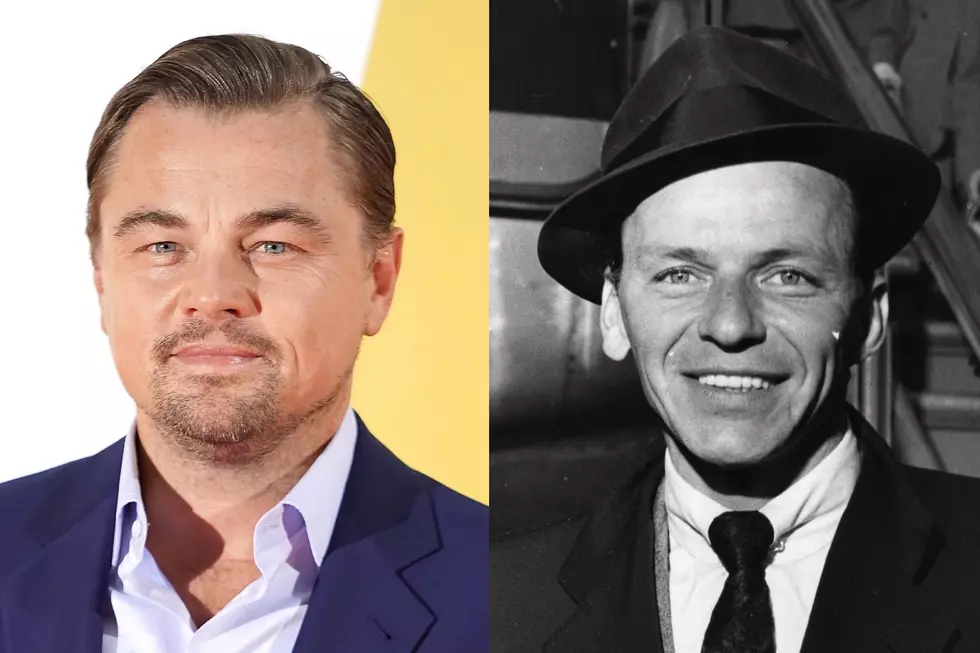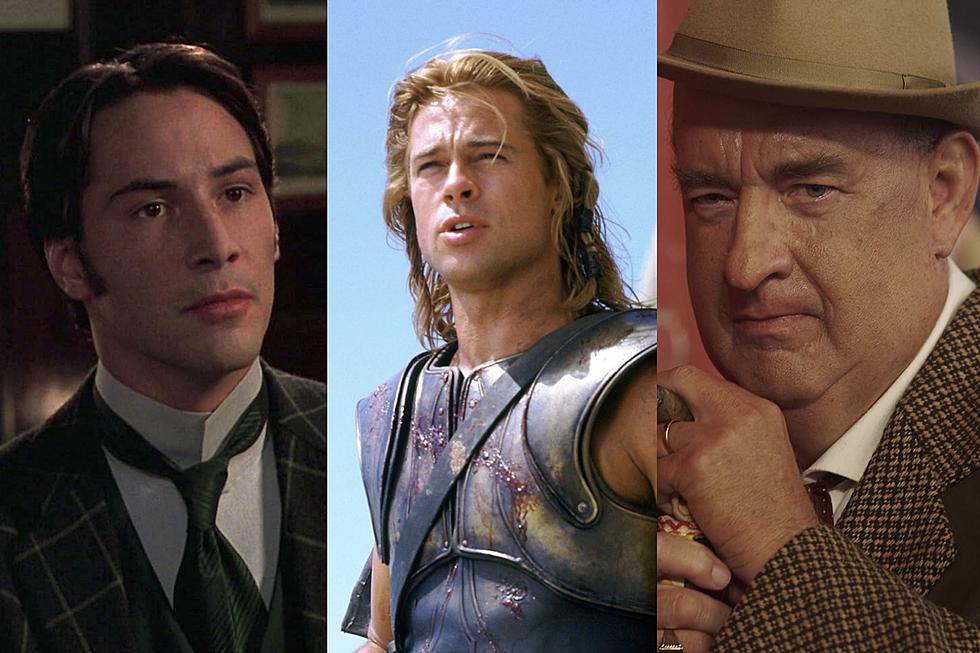
‘Django Unchained’ Review
His name is Django and as he's quick to point out, the D is silent. It's just about the only quiet part of Quentin Tarantino's 'Django Unchained,' a boisterous, bloody blaxploitation/Western hybrid. What else would you expect from Tarantino, the modern master of genre pastiche, flavorful dialogue, and grossly exaggerated violence? Whatever 'Django''s issues -- and it has a couple -- failing to deliver on its promises isn't one of them. If anything, the issue is the exact opposite.
Though largely forgotten today, the original 'Django' starring Franco Nero was one of the most successful and influential spaghetti Westerns of all-time, inspiring a legion of unauthorized and unrelated sequels. Tarantino's 'Unchained' is positioned as just another in a long line of 'Django' knockoffs -- albeit one with a significant upgrade in the production values department (it even cribs the original film's theme song). His Django (Jamie Foxx) is a slave in the American South a few years before the Civil War, where he's purchased by a flamboyant bounty hunter named Dr. King Schultz ('Inglourious Basterds'' Christoph Waltz). Schultz is on the trail of a trio of outlaws and Django has the information he needs to find them, so the German former dentist offers him his freedom in exchange for his help. Initially, their relationship is intended to last just the one job, but Django proves himself such a natural bounty hunter that Schultz decides to make him a full partner in his operation -- and to help him track down and rescue his wife Broomhilda (Kerry Washington), who has been sold at slave auction to brutal plantation owner Calvin Candie (Leonardo DiCaprio).
That last paragraph was basically all plot description -- and it was a pretty long one. 'Django Unchained' almost feels like three movies in one: Schultz and Django searching for their first targets; the pair getting to know one another during a winter of bounty hunting; and their final assault on Candyland. In addition to the Western and Blaxploitation elements, this is also a road movie, a buddy comedy, a Western spoof, and a riff on the 1975 slave fighting film 'Mandingo.' No doubt Tarantino fell in love with the world he'd created -- with good reason -- and didn't ever want to leave. But he's brought a lot to the table here. Maybe he should have taken a page from his own playbook and split this sucker up, 'Kill Bill'-style.
Tarantino fans certainly won't be disappointed. The dialogue is up to his usual standard of witty, observational excellence (and exceeds his usual standards of n-word usage), with several sequences -- like one where a bunch of racist rednecks botch their raid on Django and Schultz's camp because they're having trouble with their homemade masks -- going directly into the pantheon of QT's greatest scenes. The violence is thrilling, if a tad bloody (and by a tad, I mean ZOMFG it's insanely bloody).
As an uneducated slave, Foxx gets to create a clever new twist on the classic Western archetype of the strong, silent cowboy, and his character's limited vocabulary is also put to great comedic effect in his scenes with Waltz; together they make a memorable pair of gunslinging buddies. DiCaprio is an excellent foil for Waltz, and Samuel L. Jackson works as an effective counterpoint to Foxx as Candie's faithful servant Stephen -- whose name and demeanor deliberately evoke the old Stepin Fetchit African-American stereotype. Jackson's character seems problematic in his earliest scenes, where he walks a very fine line between satirizing a racist caricature and simply embodying it. To his credit, Tarantino puts Stephen to superb use as the film develops, revealing layers of complexity to the character and to 'Django's' depiction of race as a whole.
So with all that going for it, what's the problem? Again, from this viewer's perspective, Tarantino, seemingly unchained from any sort of creative oversight, doesn't know when to say when. Long before the movie reaches its final showdown, an anticlimactic gunfight rendered even more redundant by the fact that it takes place in the exact same location as another, bloodier gunfight from just a few scenes prior, 'Django' has begun to run out of steam. The drama dissipates right as it should be reaching fever pitch.
Obviously you don't go to a Quentin Tarantino movie for restraint. You want the excessive style, banter, and action. You do, however, go to a Quentin Tarantino movie for his perfectly structured cinematic jigsaw puzzles -- and 'Django' isn't that. Some will observe that Tarantino misses his longtime editor Sally Menke, who cut all of his previous films before she tragically passed away in 2010. They might be right. In Menke's absence, 'Django' is grossly distended, like a balloon that's been blown up to the absolute breaking point. It never quite explodes -- but it comes awfully close.
'Django Unchained' opens in theaters on December 25th.
Matt Singer is a Webby award winning writer and podcaster. He currently runs the Criticwire blog on Indiewire and co-hosts the Filmspotting: Streaming Video Unit podcast. His criticism has appeared in the pages of The Village Voice and Time Out New York and on ‘Ebert Presents at the Movies.’ He lives in Brooklyn with his wife, dog, and a prop sword from the movie ‘Gymkata.’
More From ScreenCrush









